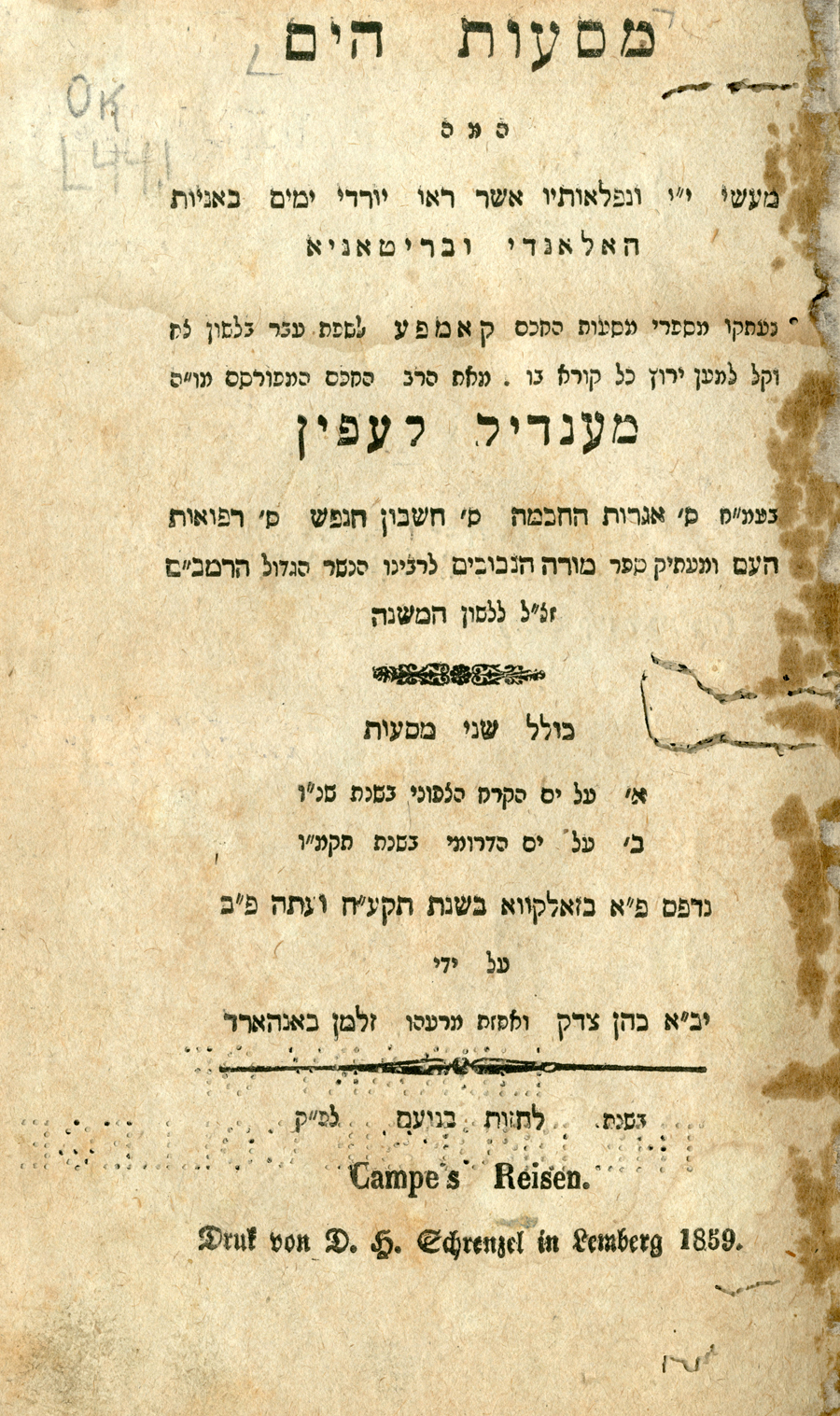Travel was a ubiquitous trope in the literature of the Jewish Enlightenment. The hazards and travails of travel by sea, and the wonders viewed by those few who dared to set sail to new lands, provided the members of the Jewish Enlightenment
The vast majority of these books were Maskilic translations of German children's books. Displayed here is an emblematic Hebrew translation of two travel stories for children originally written by the German pedagogue Joachim Heinrich Campe. The translation, produced by the Polish Maskil, Menachem Mendel Lefin in 1818, conforms to the translational norms of the Hebrew literary system of the time. It adapts the non-Jewish source text to fit the Maskilic agenda of the Jewish translator, as well as the unique needs of the Hebrew-reading public. In so doing, it reveals some Jewish-specific fantasies and anxieties surrounding such issues as Jewish acculturation, European colonialism, and modern notions of identity and difference.
